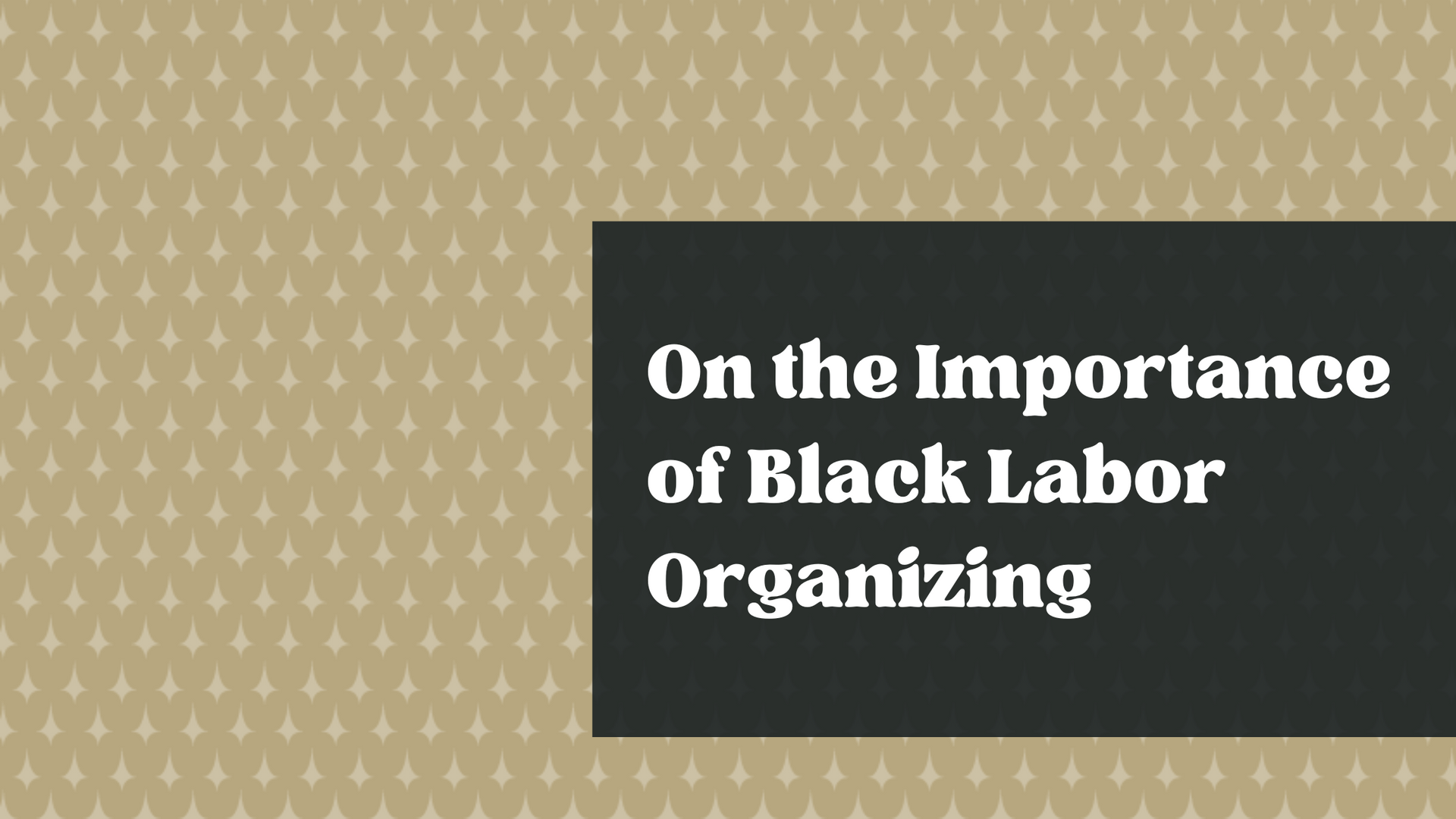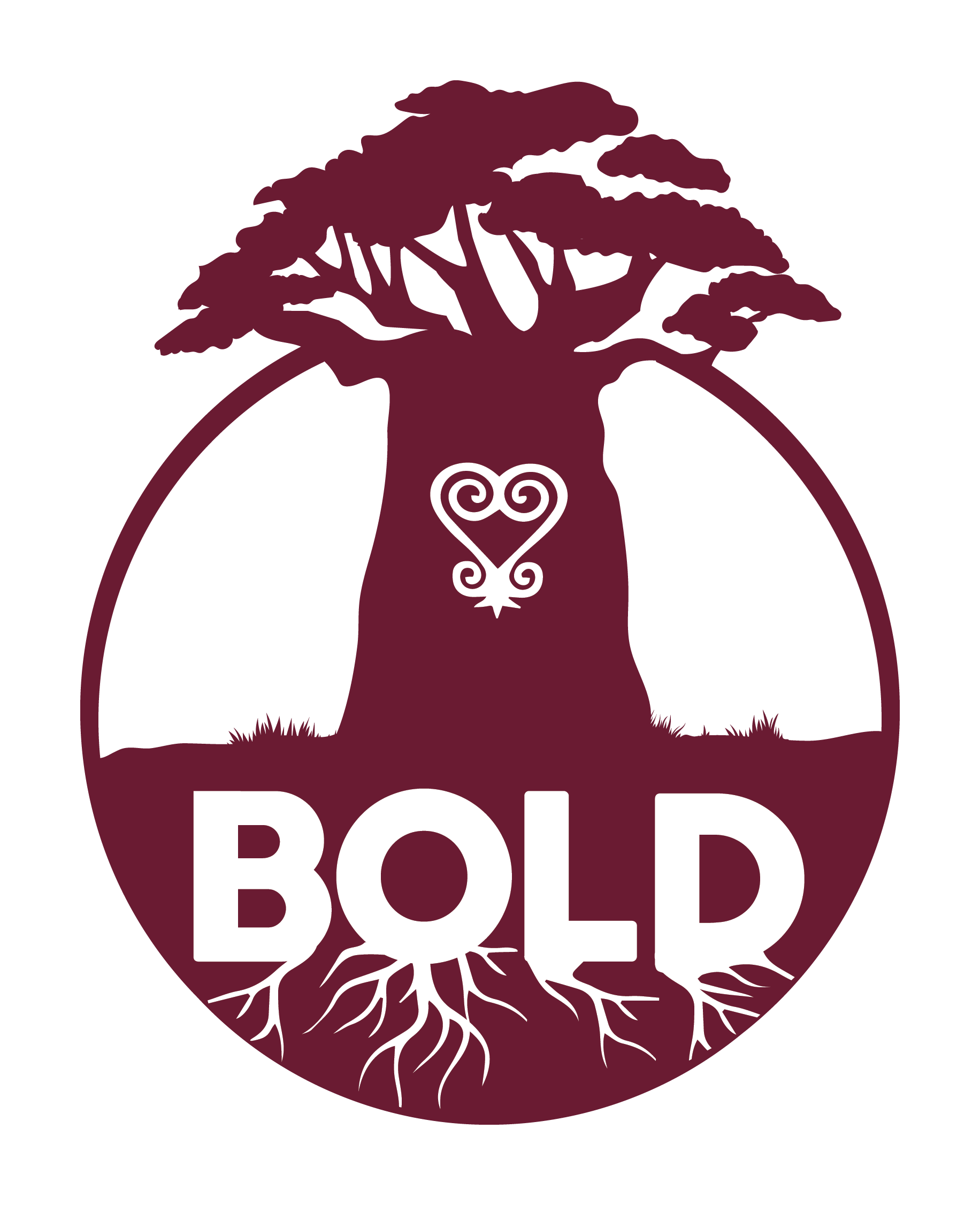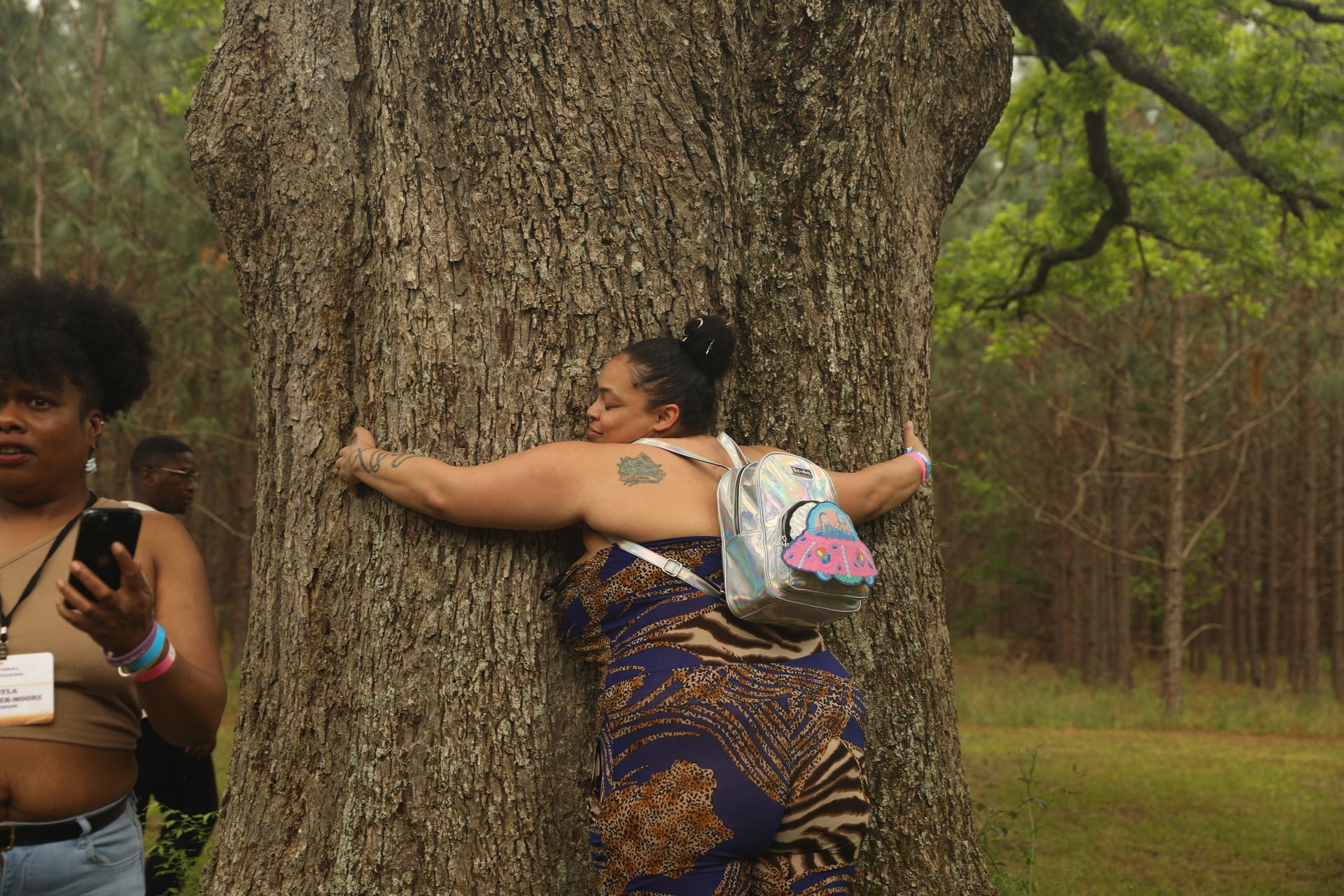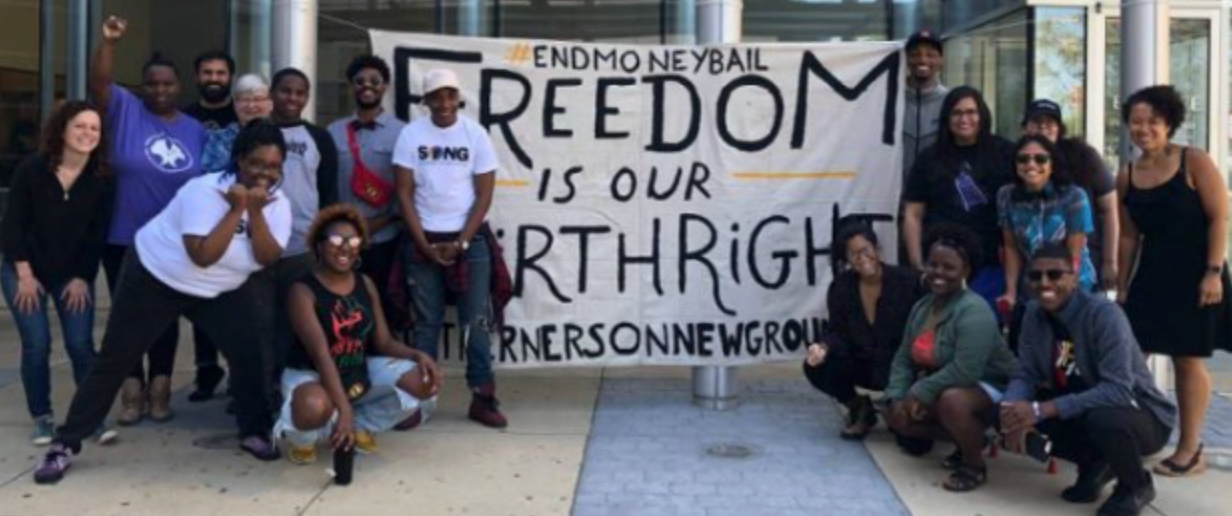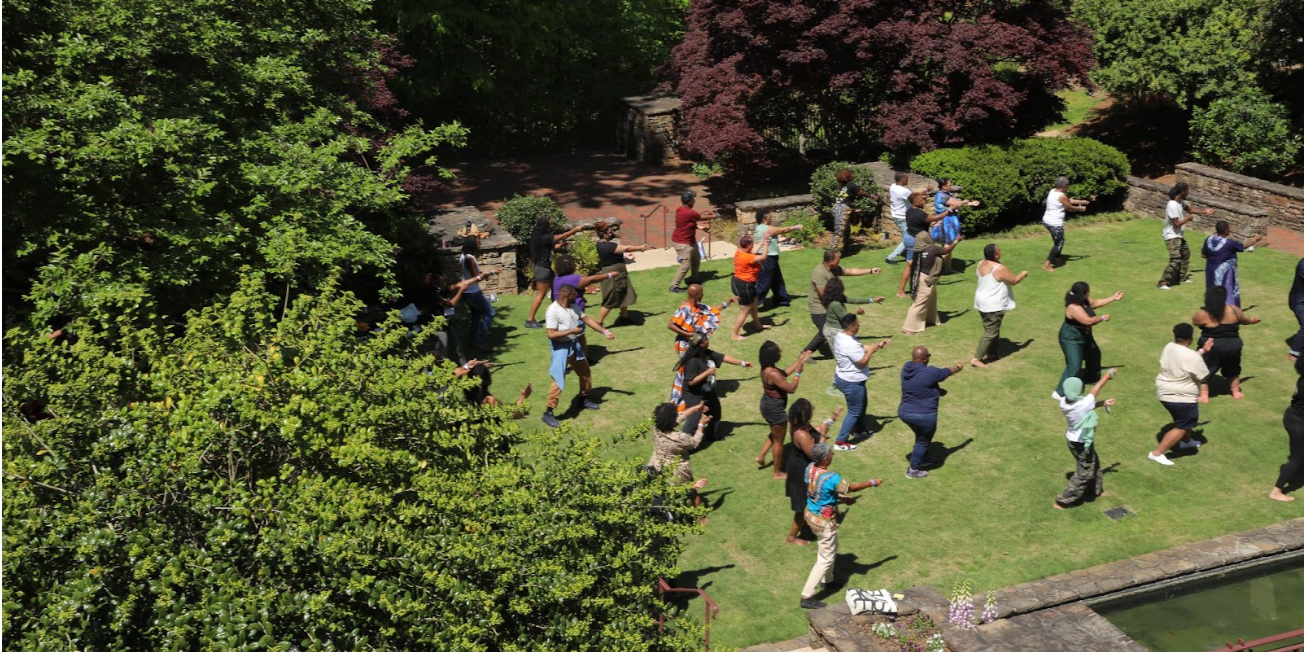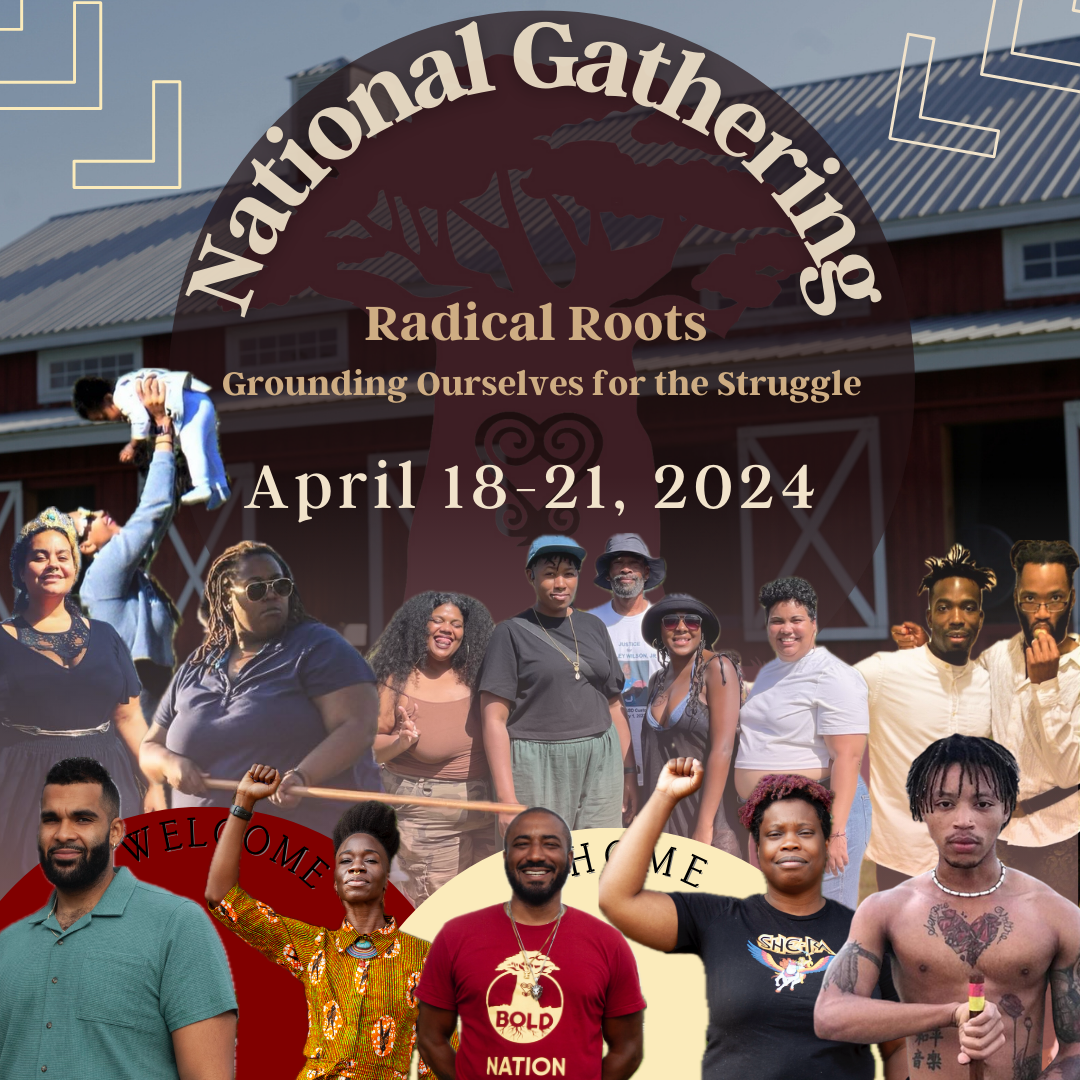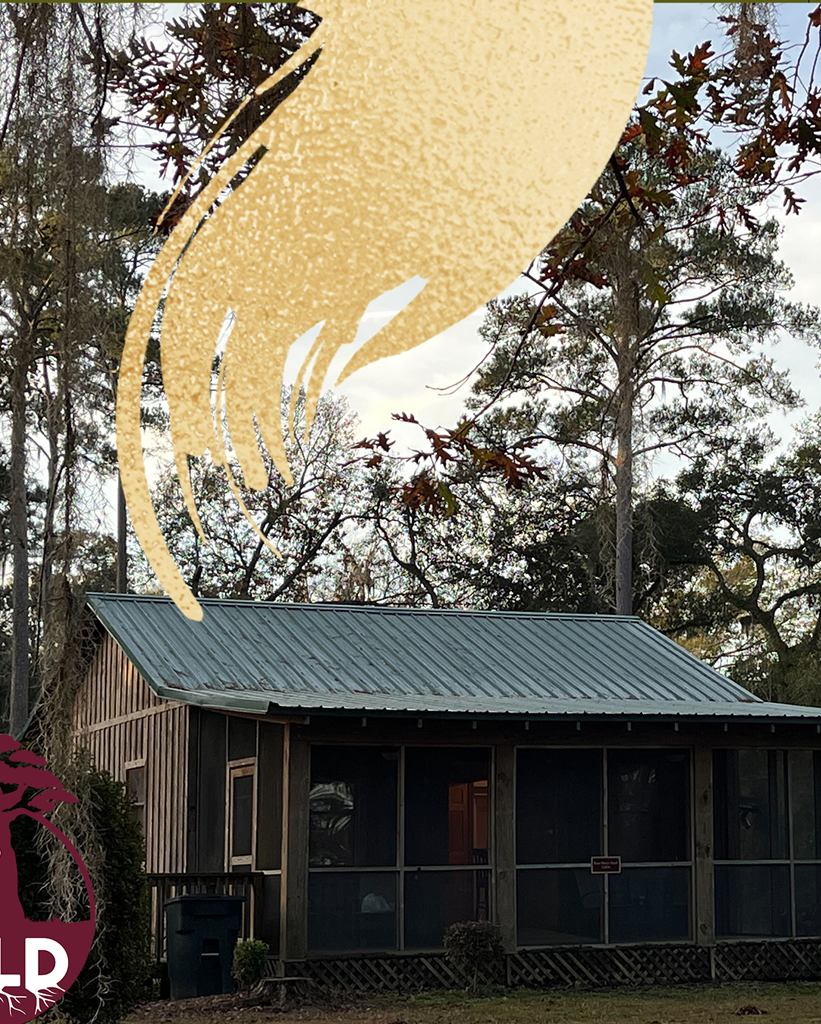BOLD Marronage Expedition: National Gathering in Review Part 3
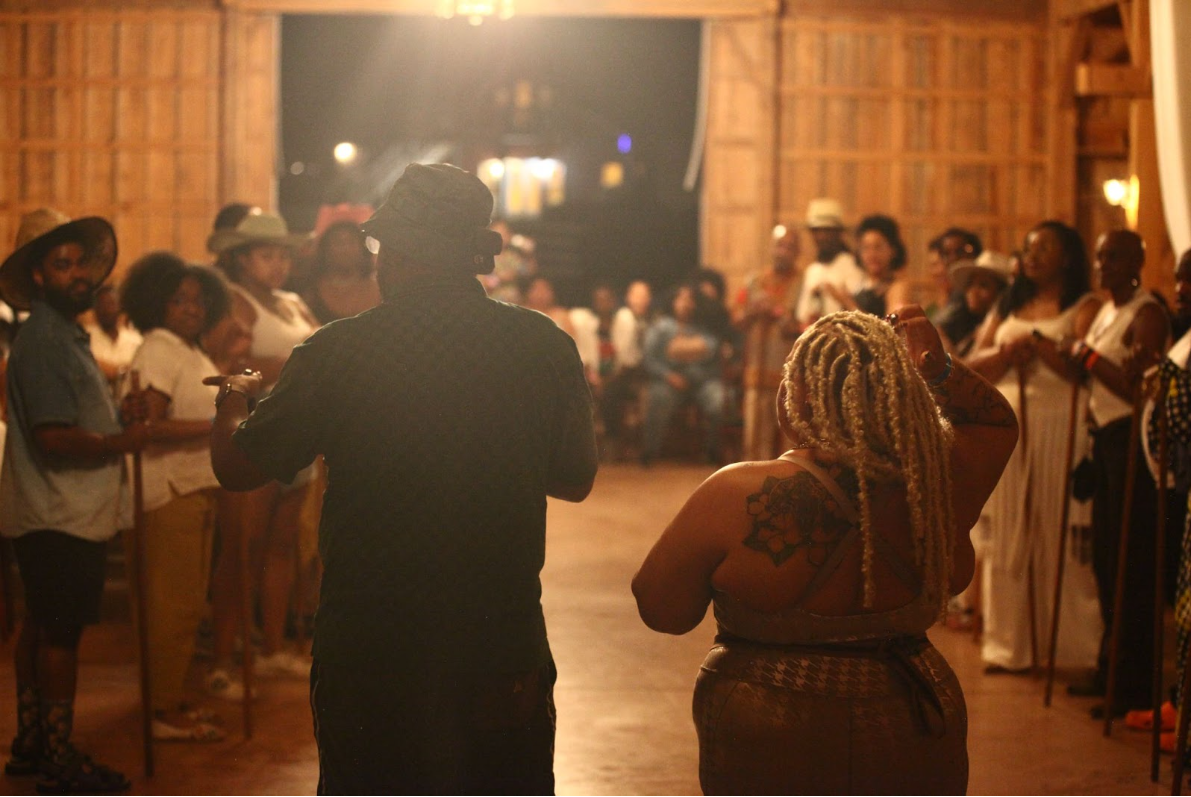
Yes, we are super hyped to share BOLD’s land stewardship journey. Oh, the possibilities! The opportunity we have now to hold brave space and bring Black folks back to the land is precious and timely. Looking ahead, we have the power to heal and live in harmony with the land… to heal Black minds, bodies, and spirits from the crushing weight of racialized capitalism…while simultaneously creating abundance for generations to come!
For many BOLD alumni who met in Atlanta to join the 2024 National Gathering, the anticipation of experiencing the BOLD Maroon space for the first time was palpable. Yes, BOLD alumni have gathered many times in many spaces over the last decade and we had dreamed of and spoke to the universe about our intertwined freedom with the land. But this was the
FIRST time the National Gathering happened on land that we can actually call our own home.
And what a magical debut it was! BOLD alumni were welcomed by the Land Stewardship and Program teams, as well as legendary leaders
Shirley Sherrod and
Mandy Carter. It was a huge honor that these giants traveled across the south to be us and share their brave stories about making space for Black women and LGBTQ+ leaders in the pursuit of land and inclusive democracy.
And even though both of these trailblazers have every right to brag and boast about their legacy, they exude humility. After their lifetimes of organizing, they were both still grounded in the collective struggles, visions, and hopes for a just future for all. They still organize and are committed to building power in the service of shared liberation. What was striking about their organizing journeys is that there really is nothing new. The challenges they faced in the 1960s through the early 2000s with mobilizing people and resources, making decisions about what issues and solutions to prioritize in the face of overwhelming racism and violence, and navigating organizational conflicts internally throughout the 20th century were all familiar to BOLD Alumni on the ground right now. Yet, the wisdom they shared fuels us to continue fighting to free ourselves and free the land today.
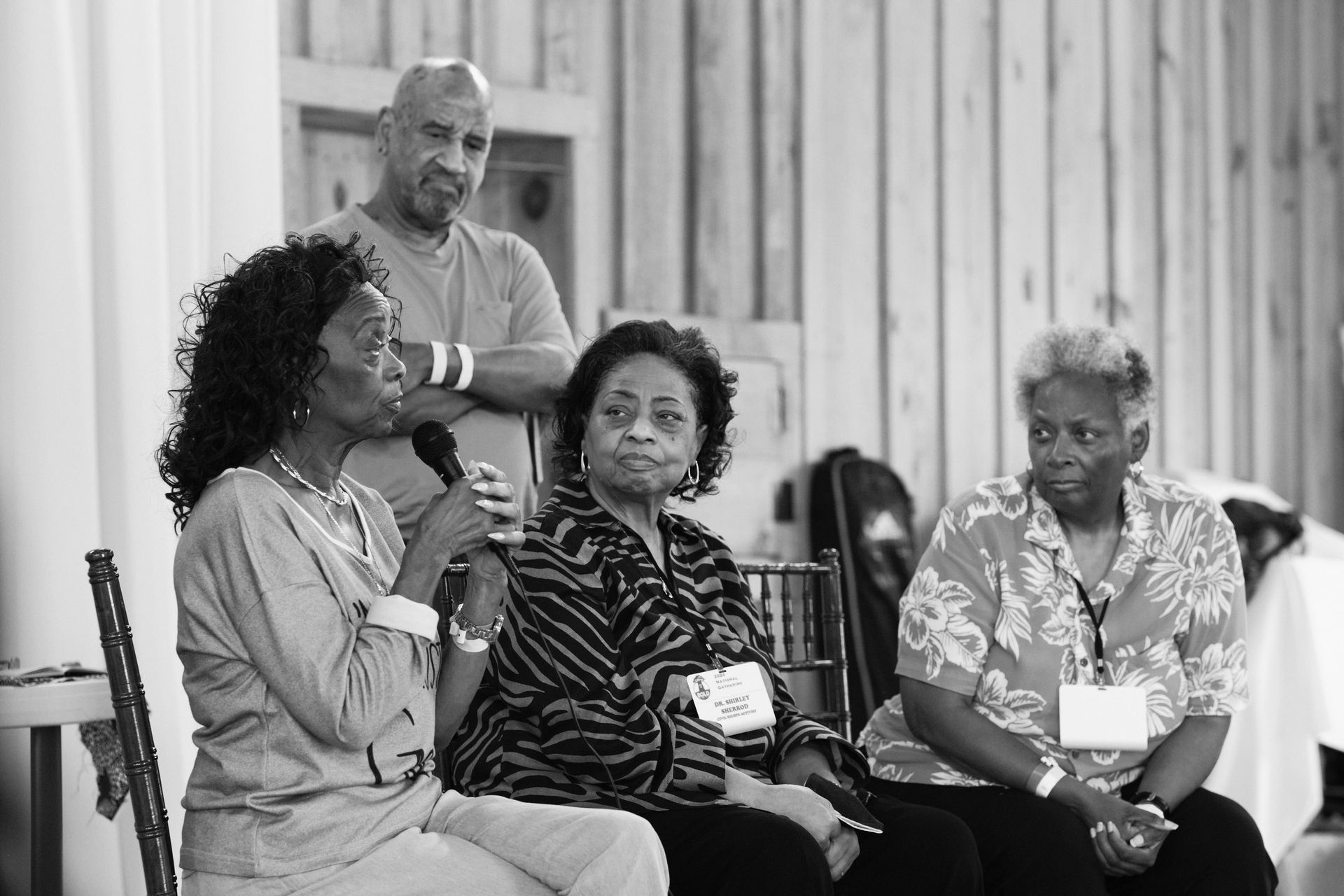
Another inspiring
BOLD FIRST was inviting the
Filhos de Bimba Atlanta School of Capoeira to join and teach us at the National Gathering this year. We learned the African roots and history of Capoeira, which made our group practice rich with intention. Capoeira, much like our Negro Spirituals, is an example of ancient, coordinated, collective wisdom. It’s a coded language in movement and music that strengthens our agility in motion, deepens relationships, invokes joy and playfulness across age groups, and signals when
it's time for coordinated action in the context of a colonized world. It’s a symbol and art that’s a part of our lineage that we hope will continue to enrich BOLD alumni’s commitments and practices towards our collective liberation.
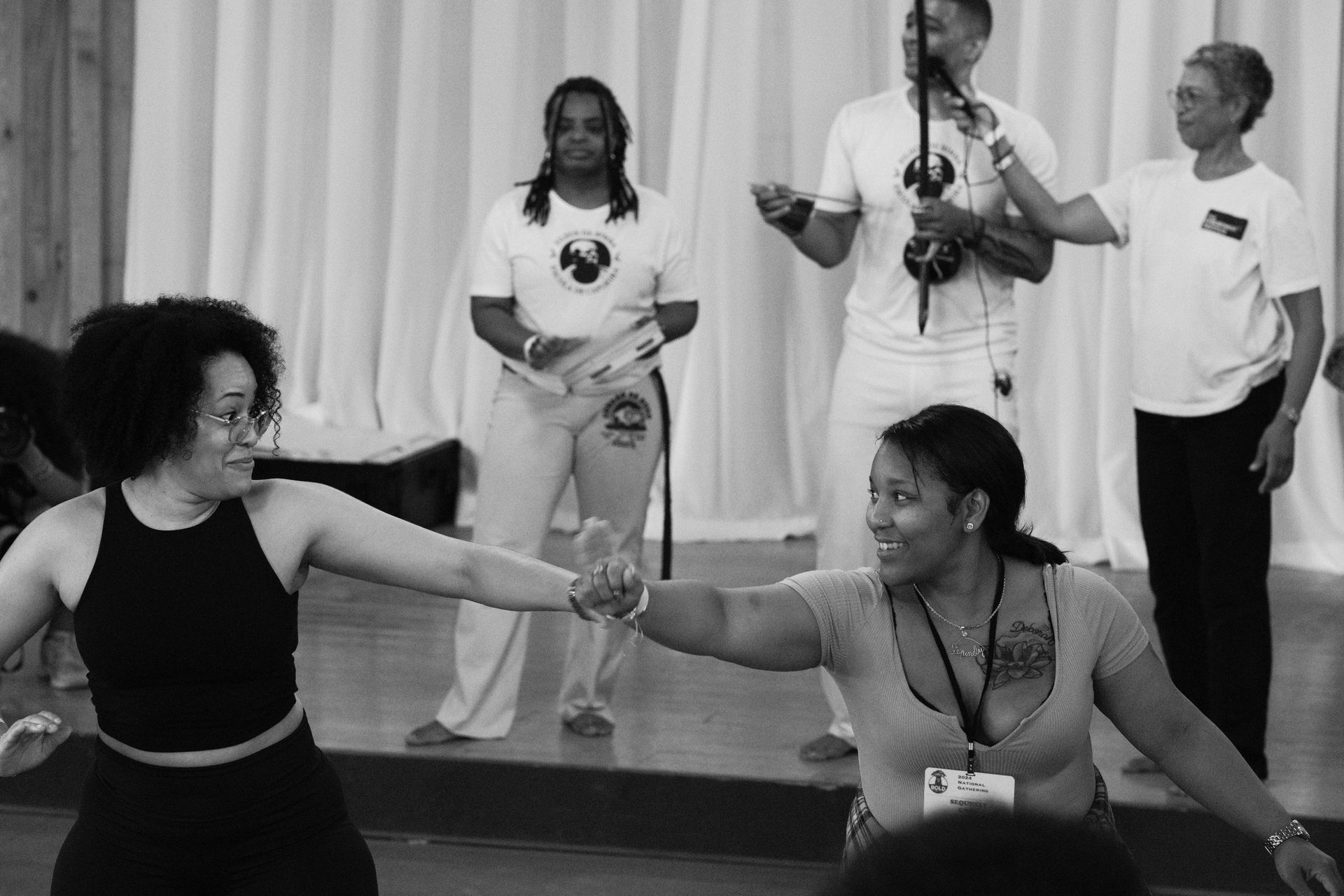
Slide title
Capoiera
ButtonSlide title
Write your caption hereButton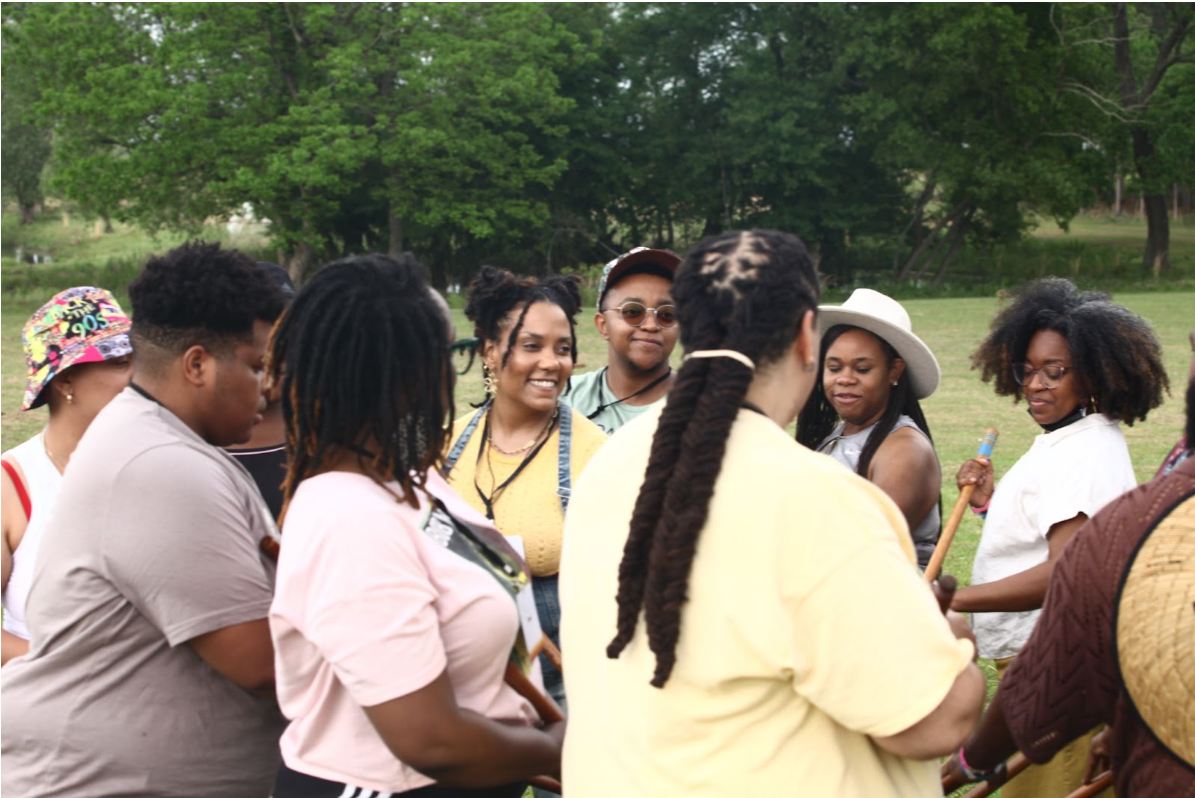
Slide title
Write your caption hereButton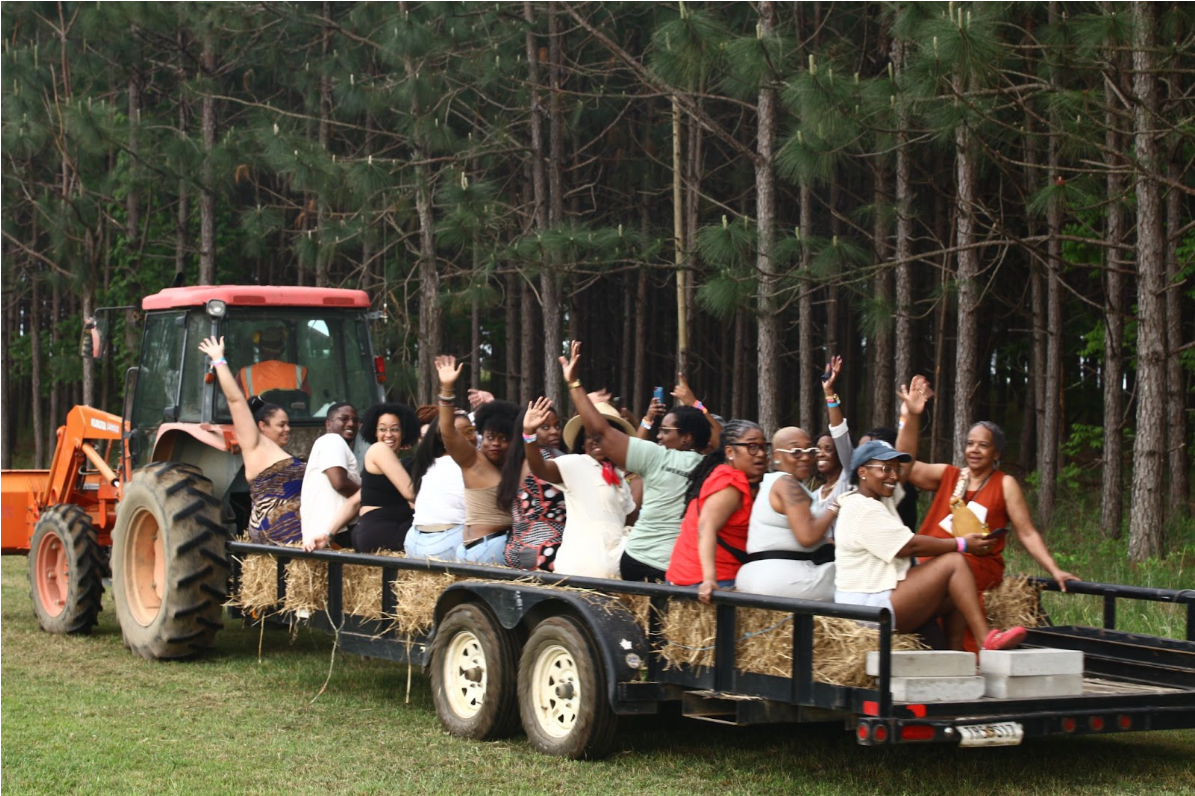
Slide title
Write your caption hereButton
And while the capoeira lessons and stories from Shirley Sherrod and Mandy Carter were impactful, perhaps the most transformational aspect of our time together was just getting to experience and be on the land together. Many BOLD alumni live in cities and have limited access to green spaces. Many BOLD alumni, no matter where they live, struggle fighting hustle culture or sacrificing their self-care because of the stresses of modern living. So for our folks to come even for just one day to BOLDland - to walk with their bare feet in the grass; to hug an ancient tree; to have fun touring acres upon acres on tractor rides; to joyfully practice aikido jo kata together; to eat healthy delicious, organic food made by our beloved friends at
2 Pieces of Toast - it was all restorative, fulfilling and motivational. And we know this because of the eruption of love in the form of new sustainer and organizational giving that BOLD Alumni committed to at this year’s gathering. We hope the spirits remain with our folks all year as we organize our communities at home.
